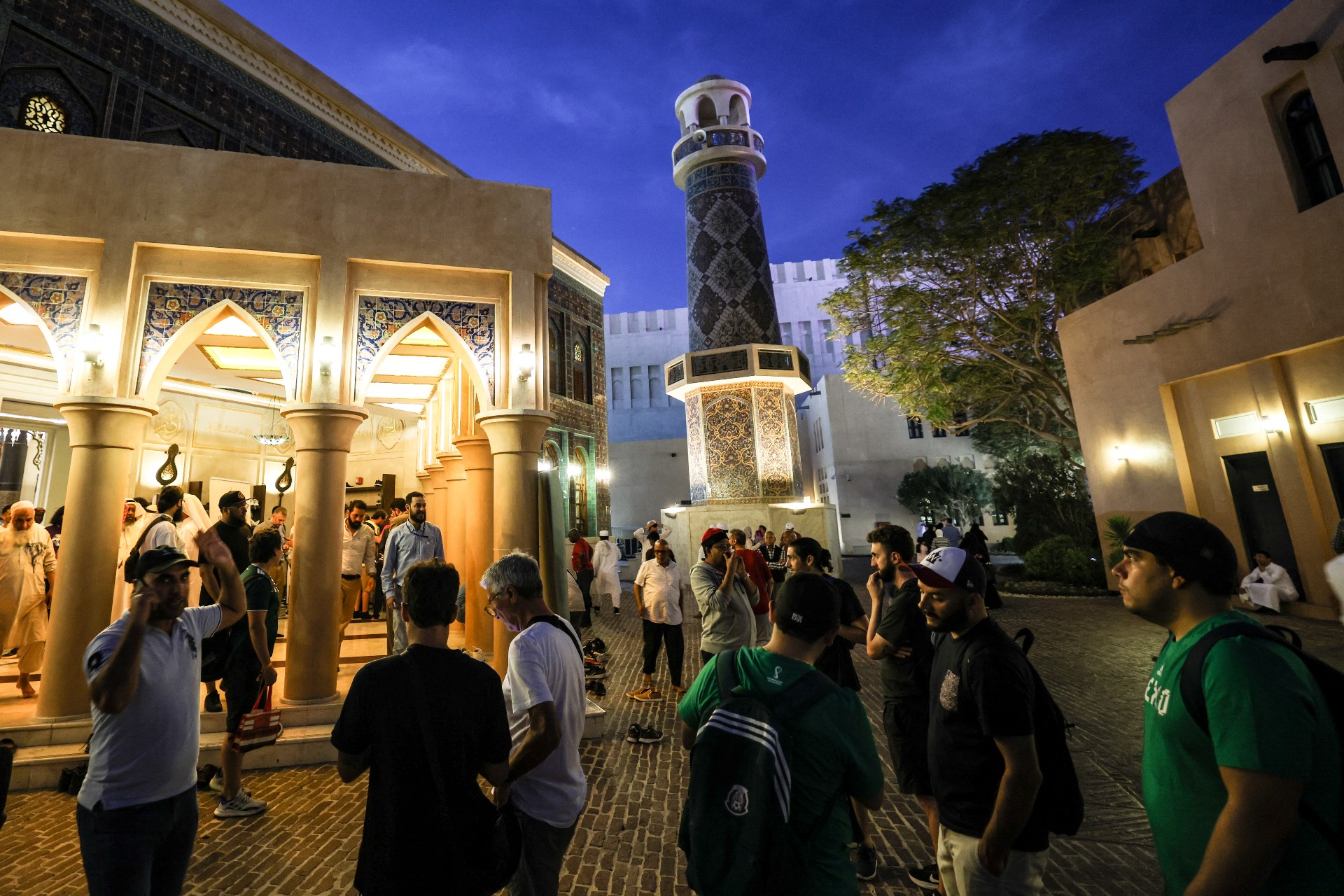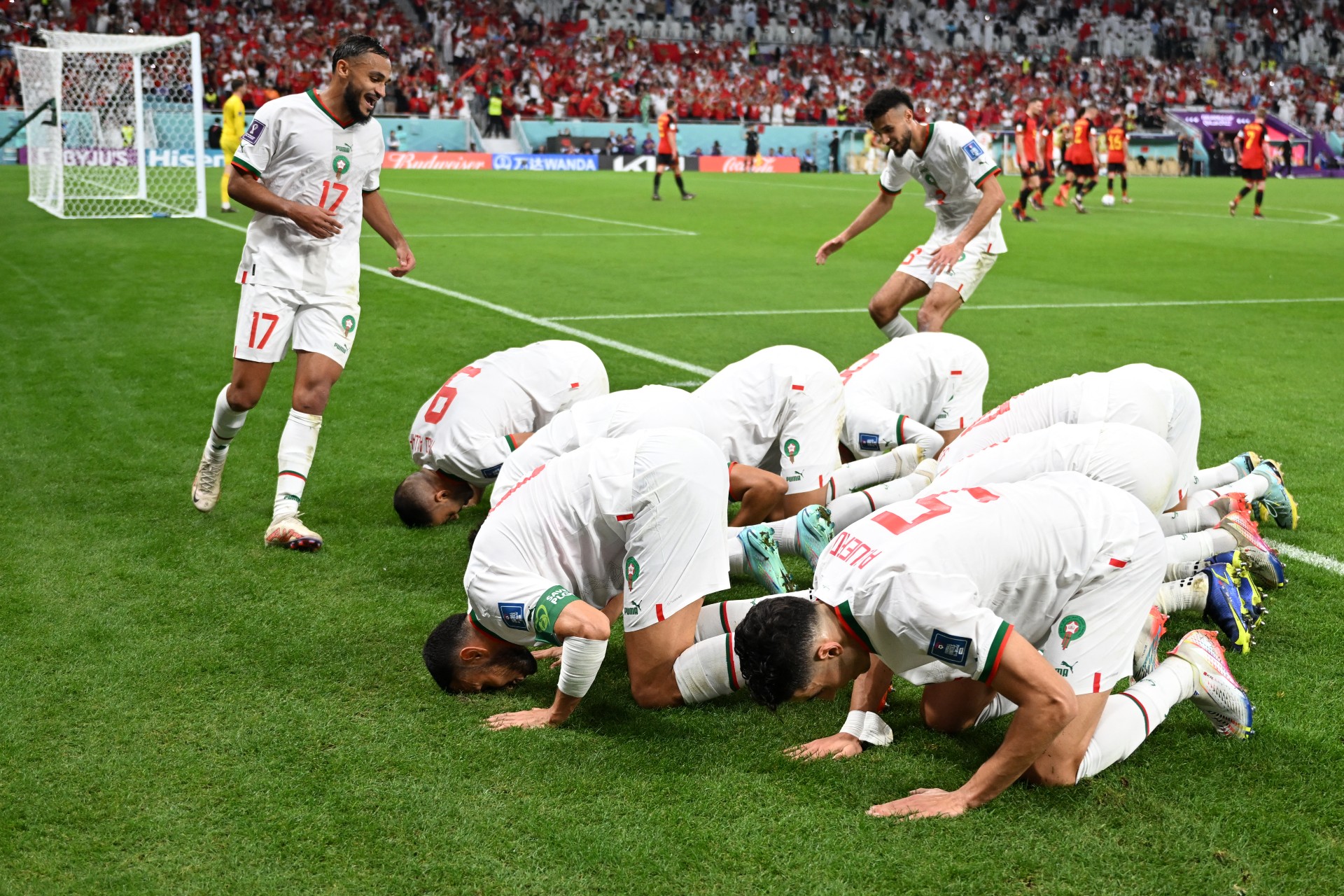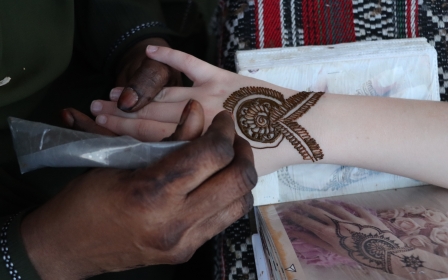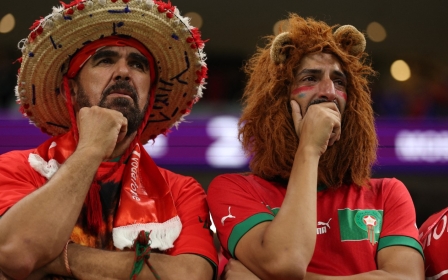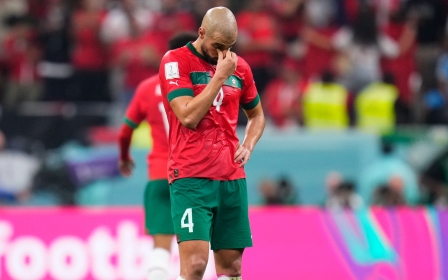Qatar World Cup: Fans hope prayer rooms, halal food and clean toilets become norm
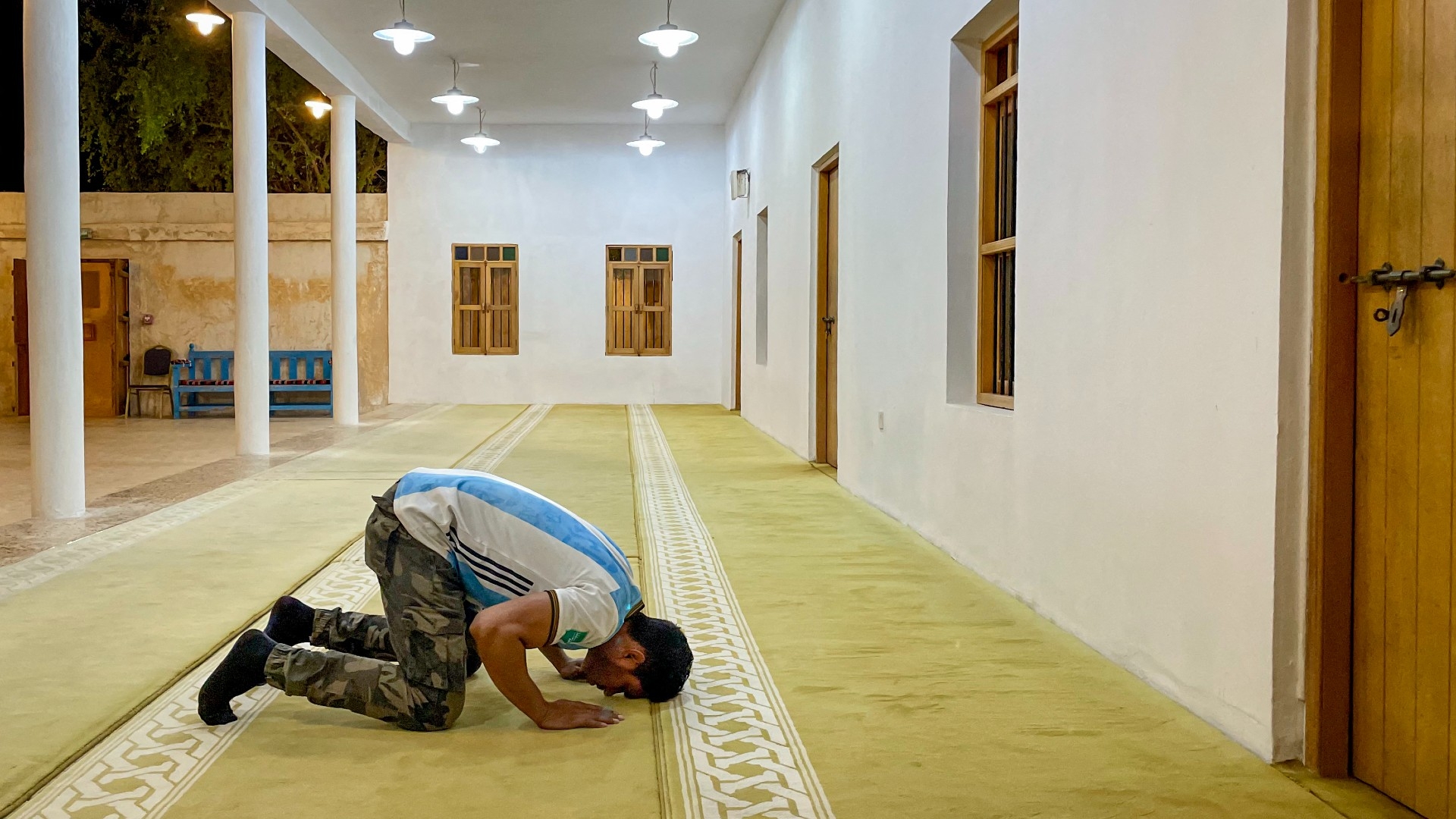
For a seasoned football fan like Rasheed Wihaib, 29, the Qatar World Cup has been a breath of fresh air.
The world's eyes have been focused on the gas-rich nation these past four weeks as an estimated one million fans descended on Doha for the first cup finals to be held in the Middle East.
For Arab and Muslim fans who have thronged to Qatar, having the football tournament in the region was seen as a major milestone and a source of pride.
While the media's focus has been squarely on Qatar's suitability as hosts, for the lovers of the beautiful game, Doha's streets and historic souq Waqif market provided countless moments illustrating football's power in bringing people together.
"I've been to hundreds of games in England. But if I want to bring family, it depends how rowdy I think it will get," Wihaib told Middle East Eye.
New MEE newsletter: Jerusalem Dispatch
Sign up to get the latest insights and analysis on Israel-Palestine, alongside Turkey Unpacked and other MEE newsletters
"It's quite common for people to drink [alcohol] all through the day before kick off."
Wihaib, a British-Iraqi software engineer and a Muslim, had no concerns over Qatar hosting the tournament, despite much noise over the prohibition of alcohol inside stadiums.
Just two days before the opening ceremony, authorities announced that alcohol would not be sold to fans inside the stadiums, though there were specific areas in fan zones where you can drink.
Instead, Wihaib said he enjoyed the novelty of being able to enjoy a halal burger during matches.
"It was nice to see that, as much as we want European fans to embrace Muslim and Arab culture, the Qataris were embracing the western football culture in their own way, too," he said, pointing at the availability of halal hot dogs and non-alcoholic beers.
At the fan village he is staying at in the district of Mesaimeer, southwest of Doha,Wihaib attends the mosque daily, praying alongside football fans from Saudi Arabia, Morocco and beyond.
He also eats with fellow matchgoers, Muslims and non-Muslims alike, whatever time of day or night it is.
"The kebab shops here are open past 4am. It really is like a halal spin on your standard night out in the UK!" he jokingly said.
For thousands of football fans like Wihaib, the tournament has been a rare opportunity to enjoy the highest level of the sport in a Muslim-majority country, with prayer facilities, halal food, and Islamic history and culture on full display.
Fans learn about Islam
From the outset of the opening ceremony last month, the Qatari organisers made a point of emphasising the importance of Islam.
In an on-stage exchange with veteran actor Morgan Freeman about tackling divisions and disagreements, young Qatari YouTuber Ghanim al-Muftah quoted a passage from the Quran to explain Islamic teachings on finding "beauty in our differences".
Hadiths (sayings of the Prophet Muhammad) were also spotted around Doha ahead of the tournament.
"The call to prayer, open prayer spaces, the respect and importance of family, and the [hadiths] on billboards... all contribute to dispelling myths and laying the foundations for a new narrative post-World Cup," Ebadur Rahman, founder of Nujum Sports, which empowers and supports Muslim athletes, told Middle East Eye.
The sights and sounds of Doha have undoubtedly piqued the curiosity of non-Muslim visitors to the World Cup.
At the Museum of Islamic Art, one of Qatar's major tourist attractions, supporters wearing the colours of Mexico, South Korea and Croatia among others crowd around and take pictures of ancient Quranic manuscripts dating back over a millennium.
And as the call to prayer echoes around the Qatari capital five times a day, inquisitive fans turn up to mosques to learn more, including at the Fanar Masjid, near the popular marketplace Souk Waqif.
'This tournament has proved that we can challenge the status quo and try different things'
- Ebadur Rahman, founder Nujum Sports
"It's amazing to see," Bangladeshi-born Doha resident Mahi Hussain told MEE outside the mosque. "The World Cup has been an opportunity for people all around the world to learn about Qatar, but also to learn about Islam.
"I just had a nice conversation with a group of Argentinians about how we pray, and about our shared belief in God. We talked about football as well."
Staff at mosques have made a conscious effort to teach people about Islam during the tournament.
Outside several places of worship, such as the Masjid of Katara in a popular cultural tourist complex, they sit with pamphlets about the pillars of Islam and willingly answer questions.
There's even an opportunity for male fans to dress up in traditional thobes and women to try on the hijab and abaya.
'Spirit of inclusivity'
Symbols of Islamic faith were seen on the pitch too: several of the participating teams, particularly those from Asia and Africa, have Muslim-majority populations.
Morocco, who became the first African team to make it to a World Cup semi-final, captured the hearts of millions of Muslims around the world with their public displays of faith.
Before their penalty shoot-out against Spain in the last 16, the players were filmed reciting Al-Fatiha, the first surah in the Quran and which Muslims recite on a daily basis during prayers.
The Atlas Lions' stars also frequently prostrated in worship and gratitude to God when they won matches, but also notably after they were defeated by France.
"For young Muslim football fans, seeing a whole team scoring and then going down for sujood [prostration] is a big thing," said Wihaib.
"I'm not a huge fan of making Muslim athletes ambassadors of the faith... but this is significant, no doubt."
Many fans and social media users have even credited Morocco's success to the love and prayers of their mothers.
"Like other sporting legends such as Khabib [Nurmagomedov], Mo Salah, and Muhammad Ali, the Moroccan team have shown the true spirit of 'Muslimness'," said Rahman.
"And what a way to manifest such a feeling and sentiment - to dance with your mother and show her your appreciation and love."
Rahman's UK-based organisation, Nujum Sports, set up a Muslim Athletes Charter to provide guidance to clubs and leagues to help look after the religious needs of its athletes. The charter has been signed by several Premier League clubs and British sports organisations.
"This tournament has proved that we can challenge the status quo and try different things," he said.
"We can incorporate culture, food and festivities in a positive way with a spirit of inclusivity and learning."
That inclusivity has come in unexpected ways: one popular YouTuber was mind-blown by the shattaf toilet bidet sprayers he found all around Qatar. It's use is a form of istinja, the Islamic obligatory practice of cleaning oneself with water after using the loo.
"I am absolutely horrified we only use toilet paper in the UK," influencer David Vujanic said.
Football didn't come home to England, but perhaps a new form of bathroom hygiene popular in the Islamic world might instead.
Middle East Eye delivers independent and unrivalled coverage and analysis of the Middle East, North Africa and beyond. To learn more about republishing this content and the associated fees, please fill out this form. More about MEE can be found here.


